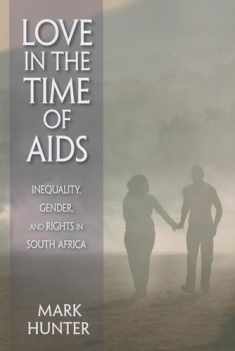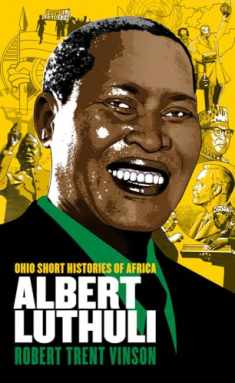
Askari: A Story of Collaboration and Betrayal in the Anti-Apartheid Struggle
ISBN-13:
9780190277383
ISBN-10:
0190277386
Edition:
1
Author:
Jacob Dlamini
Publication date:
2015
Publisher:
Oxford University Press
Format:
Paperback
320 pages
Category:
Africa
,
Historical
,
Political
,
Leaders & Notable People
,
Social Activists
,
Southern Africa
,
African History
FREE US shipping
Book details
ISBN-13:
9780190277383
ISBN-10:
0190277386
Edition:
1
Author:
Jacob Dlamini
Publication date:
2015
Publisher:
Oxford University Press
Format:
Paperback
320 pages
Category:
Africa
,
Historical
,
Political
,
Leaders & Notable People
,
Social Activists
,
Southern Africa
,
African History
Summary
Askari: A Story of Collaboration and Betrayal in the Anti-Apartheid Struggle (ISBN-13: 9780190277383 and ISBN-10: 0190277386), written by authors
Jacob Dlamini, was published by Oxford University Press in 2015.
With an overall rating of 3.5 stars, it's a notable title among other
Africa
(Historical, Political, Leaders & Notable People, Social Activists, Southern Africa, African History) books. You can easily purchase or rent Askari: A Story of Collaboration and Betrayal in the Anti-Apartheid Struggle (Paperback) from BooksRun,
along with many other new and used
Africa
books
and textbooks.
And, if you're looking to sell your copy, our current buyback offer is $0.97.
Description
Winner of the 2015 Sunday Times Alan Paton Award (South Africa)
'Comrade September', a member of the ANC and its military wing, MK, was abducted from his hideout in Swaziland by South African security forces in August 1986 and taken across the border to South Africa, where he was interrogated and tortured. It was not long before September began telling his captors about his comrades in the ANC. By talking under torture, September underwent changes that marked him for the rest of his life: from resister to collaborator, insurgent to counter-insurgent, revolutionary to counter-revolutionary and, to his former comrades, hero to traitor.
Askari is about these changes and about the larger, neglected history of betrayal and collaboration in the struggle against apartheid. It seeks to understand why men and women like September made the choices they did - collaborating
with his captors, turning against the ANC, and then hunting down their comrades. It seeks rather to offer a history of the
the grey zones in which South Africans - combatants and non-combatants - lived, rather than the black-and-white bifurcation that still dominates South Africa's politics and society.
As the book demonstrates, September's acts of betrayal form but one layer in a sedimentation of betrayals in which he was betrayed by the Swazi police and may have been sold out to the Swazis and the South African security police by his own comrades in the ANC.
This, then, is not a morality tale in which the lines between heroes and villains are clearly drawn. The book does not claim that the competing sides in the fight against apartheid were moral equivalents. It seeks to contribute to scholarly attempts to elaborate a denser, richer and more nuanced account of South Africa's modern political history. It does so by examining the history of political violence in South Africa; by looking at the workings of an apartheid death squad in an attempt to understand how the apartheid bureaucracy worked; and, more importantly, by studying the social, moral and political universe in which apartheid collaborators like September lived and worked.
'Comrade September', a member of the ANC and its military wing, MK, was abducted from his hideout in Swaziland by South African security forces in August 1986 and taken across the border to South Africa, where he was interrogated and tortured. It was not long before September began telling his captors about his comrades in the ANC. By talking under torture, September underwent changes that marked him for the rest of his life: from resister to collaborator, insurgent to counter-insurgent, revolutionary to counter-revolutionary and, to his former comrades, hero to traitor.
Askari is about these changes and about the larger, neglected history of betrayal and collaboration in the struggle against apartheid. It seeks to understand why men and women like September made the choices they did - collaborating
with his captors, turning against the ANC, and then hunting down their comrades. It seeks rather to offer a history of the
the grey zones in which South Africans - combatants and non-combatants - lived, rather than the black-and-white bifurcation that still dominates South Africa's politics and society.
As the book demonstrates, September's acts of betrayal form but one layer in a sedimentation of betrayals in which he was betrayed by the Swazi police and may have been sold out to the Swazis and the South African security police by his own comrades in the ANC.
This, then, is not a morality tale in which the lines between heroes and villains are clearly drawn. The book does not claim that the competing sides in the fight against apartheid were moral equivalents. It seeks to contribute to scholarly attempts to elaborate a denser, richer and more nuanced account of South Africa's modern political history. It does so by examining the history of political violence in South Africa; by looking at the workings of an apartheid death squad in an attempt to understand how the apartheid bureaucracy worked; and, more importantly, by studying the social, moral and political universe in which apartheid collaborators like September lived and worked.


We would LOVE it if you could help us and other readers by reviewing the book
Book review

Congratulations! We have received your book review.
{user}
{createdAt}
by {truncated_author}




